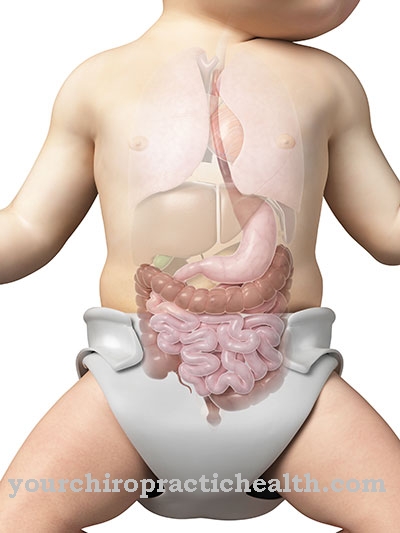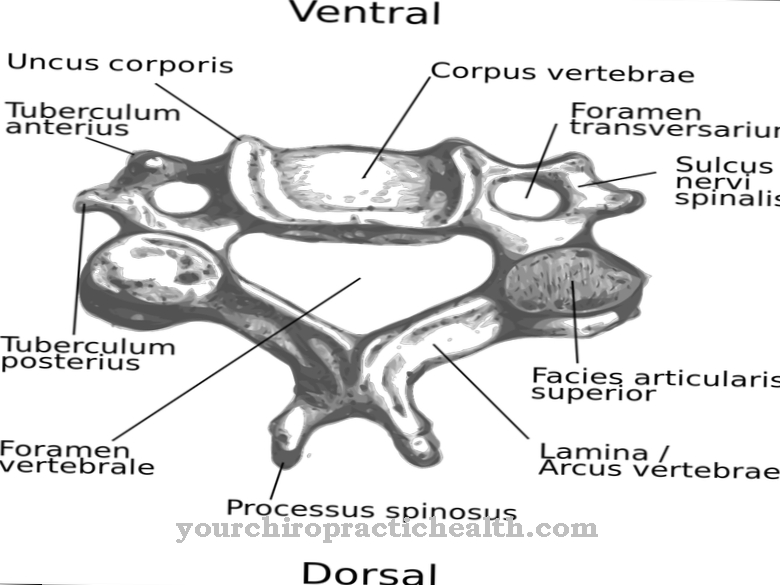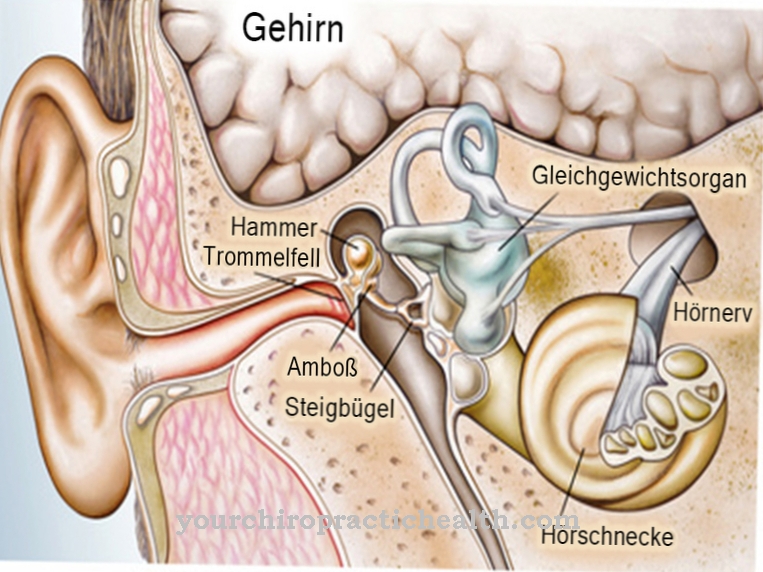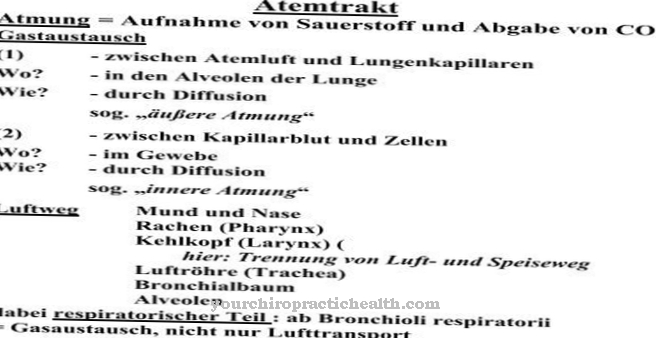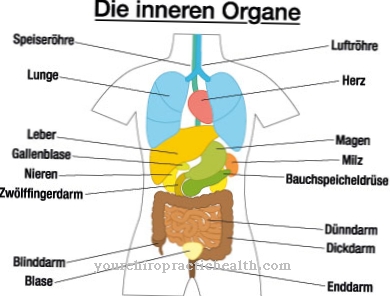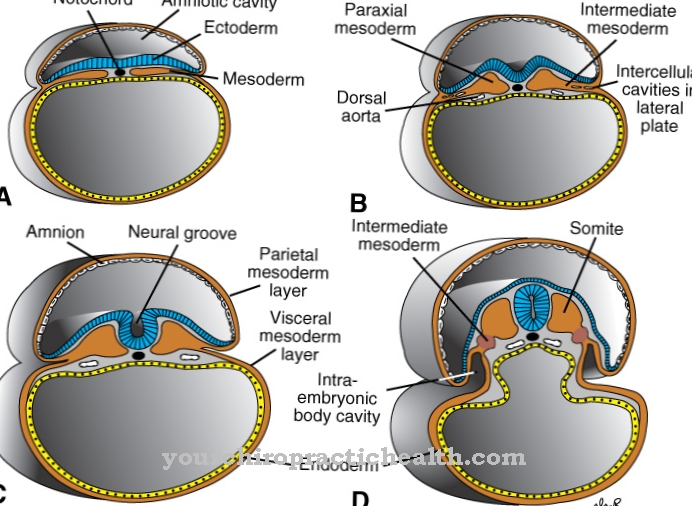The Aerophagy refers to excess air in the gastrointestinal tract. As a rule, some air gets into the digestive tract when talking, eating or drinking, but in the case of aerophagia, the amount of air swallowed is so great that it leads to gas, abdominal pain and excessive belching.
What is aerophagy?

If there are usually few problems swallowing air, aerophagia can cause painful and chronic complaints in the gastrointestinal tract. The majority of swallowed air that has got into the stomach is expelled when belching (burping).
However, if small amounts of oxygen get from the stomach into the small intestine, this often leads to gas, painful stomach cramps and flatulence. In children in particular, extreme amounts of ingested air can cause the stomach to expand and lead to complications such as gastric volvulus, intestinal obstruction or breathing difficulties.
In 2009, a study of aerophagia was first published, using X-rays to document that a group of patients had excessive gas and symptoms related to excessive air swallowing.
causes
The initial causes of aerophagia are to be found in eating or drinking too quickly, which leads to excessive air swallowing. Excess air can also get into the stomach from carbonated drinks or chewing gum.
A stuffy nose or other breathing problems, such as excessive mouth breathing, can also be a cause of aerophagia. An anxious, nervous, or tense state can also lead to uncontrolled air intake. In this respect, psychosomatic illnesses can also lead to the ingestion of air due to additional nervousness or tension. In around nine percent of mentally disabled people, aerophagia is an expression of the impaired coordination between swallowing and breathing.
Talking too quickly also leads to aerophagia and is usually an unconscious problem. Aerophagia can also be an expression of allergies, especially lactose intolerance. Last but not least, medical devices or ill-fitting dentures can also cause aerophagia.
You can find your medication here
➔ Medicines for belching & heartburnSymptoms, ailments & signs
Aerophagia is associated with some unpleasant ailments and symptoms. However, these complaints are not particularly dangerous and usually do not have a negative effect on the health of the person concerned. Only in severe cases can the esophagus tear if the air pressure rises too much.
Those affected primarily suffer from strong belching and also from gas and flatulence. In some cases, the flatulence leads to pain in the abdomen and stomach as well. A feeling of fullness occurs, which is usually very strong after ingesting food. The stomach itself presses on the lungs, making it difficult for the person affected to breathe.
This also reduces the patient's resilience and leads to permanent fatigue and exhaustion. Furthermore, aerophagia can also lead to nausea or vomiting, although these syndromes are not particularly common.
A feeling of tightness in the stomach also occurs in some cases. Aerophagia can also lead to heartburn. Due to the constant belching and the flatulence, some patients also suffer from depression or psychological complaints.
Diagnosis & course
A diagnosis of aerophagia usually relates to persistent symptoms within a year with at least three months of continuous exertion with significant air swallowing, an increase in gas formation within the digestive tract, flatulence, and repeated belching.
Other symptoms of aerophagia include bloating, exhaust fumes, and reflux. If aerophagia is a dangerous side effect of other applications, the trapped air can be detected outside the abdominal cavity by listening with a stethoscope.
This build-up can cause the stomach to stretch and cause the stomach to press on the lungs, making breathing difficult. In severe cases, aerophagia can cause the esophagus to rupture due to the build-up of air pressure.
Complications
Various complications can result from aerophagia. At the beginning of the disease, in addition to the typical swallowing difficulties, gas and abdominal pain often occur. In general, swallowing air leads to pronounced malaise, which increases as the disease progresses.
The increase in gas formation within the gastrointestinal tract also leads to an increased feeling of fullness, which increases the pressure on the lungs. This can cause breathing problems and aggravation of aerophagic symptoms; in extreme cases, the build-up of air pressure can cause the esophagus to rupture. In small children there is a risk of life-threatening intestinal obstruction as part of aerophagia.
In the elderly and sick, as well as pain patients, swallowing air can also lead to respiratory depression or promote an existing illness. When treating air swallowing, complications are unlikely as the therapy focuses primarily on swallowing training.
Problems can arise when aerophagia is a symptom of a lung disease. Then the actual underlying disease can rarely be carried over, which can result in permanent damage. If the cause is a stress disorder, it must be treated alongside the aerophagia treatment.
When should you go to the doctor?
It is not always necessary to go to a doctor if you feel unwell or have atypical symptoms. Sometimes, however, slight complaints, especially if they recur temporarily or over a longer period of time, should be clarified by a doctor. And this is exactly the case for complaints that could indicate aerophagia.
If nausea, which is considered normal and which is sometimes stronger and sometimes weaker, persists over a longer period of time, at least a conversation with a comprehensive anamnesis is required so that other underlying diseases can be recognized and treated at an early stage.
Anyone who suffers for at least three months from massive air swallowing, increasing gas formation in the digestive tract as well as flatulence and constantly recurring belching should not think twice about it, but arrange an appointment with their doctor or a gastrointestinal specialist immediately.
The feeling of fullness, which is often referred to as insignificant, as well as severe flatulence and temporary or constant reflux must be treated by a specialist.
If breathing in the lower part of the lungs, i.e. near the stomach, is emotionally hindered by a feeling of tightness, a doctor should be consulted as soon as possible.
Doctors & therapists in your area
Treatment & Therapy
Treatment for aerophagia basically involves changing habits that cause it to chew and swallow slowly, eat with your mouth closed, and avoid carbonated beverages and coffee.
At the same time, you need training to calm your breathing, especially to avoid nervous tension. Some patients may need to use speech therapy exercises to learn to stop excessive inhalation before speaking. The treatment of subconscious aerophagia includes in particular elements such as general calming, slowing down and conscious nasal breathing, for example with the help of the Buteyko breathing technique or yoga.
In cases where medical devices have caused aerophagia as a result of otherwise necessary treatment, a change in therapy should be considered. A comprehensive allergy test can diagnose allergies and indicate appropriate measures. In drug treatment, thorazine has proven to be helpful in some cases; drugs such as dimethicone and simethicone prevent gas formation in the intestine and can relieve symptoms.
Regulatory herbal teas with fennel, chamomile or thyme can also be used for this. In the mentally handicapped with acute aerophagia, feeding a nasogastric tube and giving sedatives may help.
Outlook & forecast
Aerophagy causes various complaints in the stomach and intestines in the patient. These complaints have a very negative effect on the everyday life and quality of life of the patient. Usually there is gas and abdominal pain. Furthermore, those affected suffer from unpleasant belching and not infrequently from bad breath.
These complaints can also lead to irritability or psychological complaints. In addition, there is a feeling of fullness, which can lead to a loss of appetite and thus to underweight. These complaints mainly occur after ingesting food. In the worst case, aerophagy can lead to a tear in the esophagus, which can be life-threatening for the person concerned.
As a rule, aerophagia can be treated relatively well and easily. In most cases, no surgery is necessary to alleviate the symptoms. The person concerned can use various therapies and techniques to permanently avoid swallowing air. The disease always progresses positively. In most cases there are no further complications.
You can find your medication here
➔ Medicines for belching & heartburnprevention
To avoid aerophagia, it is generally advisable to avoid breathing through the mouth even during night sleep. Reducing the consumption of milk and dairy products and foods rich in carbohydrates, as well as eating foods in a calm atmosphere, reduce much of the risks of excessive air intake. A calm way of speaking and controlled breathing when articulating also counteract aerophagia.
You can do that yourself
The disease can be prevented or even avoided completely through various measures. When eating, the food should not be taken too hastily and quickly. Slow chewing and swallowing, as well as eating with your mouth closed, can help. This enables the stomach to work faster. Avoiding certain foods that release gases in the stomach, such as legumes, paprika or yeast products, can also lead to an improvement in symptoms. In addition, large amounts of carbonated drinks and coffee should be avoided, as these lead to an increased release of carbon dioxide in the stomach. Smoking and chewing gum should also be avoided if possible.
Since stress is also a very strong risk factor when swallowing air, stress-reducing measures such as a balanced diet, sufficient physical activity or relaxation exercises such as Yoga. Changing breathing technique can also improve symptoms. Speech therapy exercises allow some patients to learn to stop breathing excessively before speaking. If the aerophagia occurs during drug treatment, it may be useful to change the agent used.

.jpg)

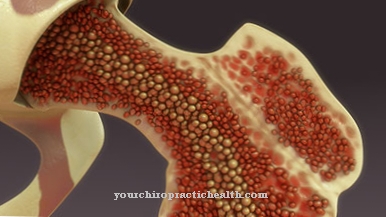
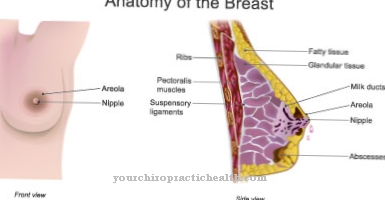
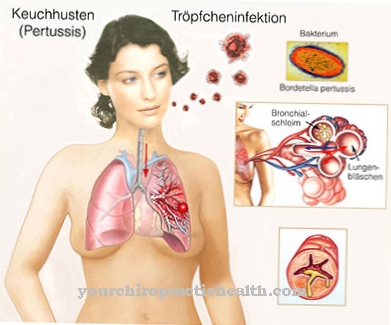







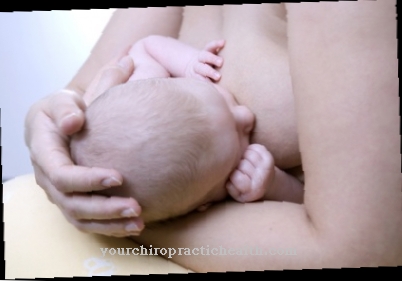
.jpg)

